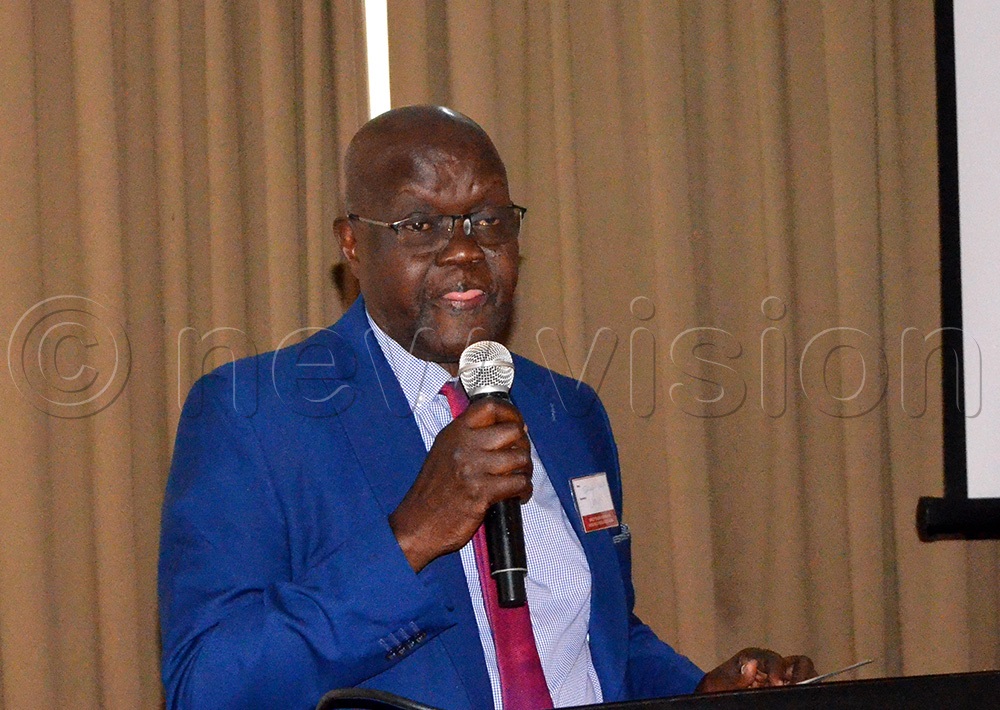Experts call for stronger regulation of digital health services in Uganda
Prof. Sharifah Sekalala, a global health law expert from the University of Warwick in the United Kingdom, emphasised the need for robust regulatory frameworks in the sector.
Prof. Sharifah Sekalala, from Global Health Law at the University of Warwick, United Kingdom speaking during capacity-building workshop on digital health regulation at Sheraton hotel. (Photo by Violet Nabatanzi)
___________________
As Uganda's digital health landscape continues to expand, experts are urging for stronger regulation to safeguard patient data and ensure the safety of emerging digital health innovations.
Prof. Sharifah Sekalala, a global health law expert from the University of Warwick in the United Kingdom, emphasised the need for robust regulatory frameworks in the sector.
“We have been working with the Ministry of Health over the last three years to rethink how digital health is regulated,” Sekalala said, adding that medical practitioners and private sector actors are among the most critical stakeholders.
Sekalala made the remarks during a capacity-building workshop on digital health regulation held on August 4, 2025, at the Sheraton Kampala Hotel. She leads a project titled No App for This: Regulating the Migration of Health Data in Sub-Saharan Africa, funded by the Wellcome Trust.
She warned that without proper oversight, digital health innovations could be misused by developers, leading to data breaches and potential harm to patients. “These innovations, if not properly checked, could be dangerous and cause harm,” she noted. “There is also a risk of eroding trust between patients and healthcare providers. If people feel their information is not safe, they may hold back important details from their doctors.”
The workshop, organised in partnership with the Uganda Medical and Dental Practitioners Council (UMDPC) and the Ministry of Health, aimed to raise awareness of Uganda’s digital health regulations and their implications for healthcare professionals.
Prof. Joel Okullo, chairperson of the UMDPC, noted that although digital health is not a new concept in Uganda, its rapid growth, especially with the rise of Artificial Intelligence (AI), demands urgent regulatory attention.
Prof. Joel Okullo, Chairperson Uganda Medical and Dental Practitioners Council speaking during capacity-building workshop on digital health regulation at Sheraton hotel. (Photo by Violet Nabatanzi)
“Just a few years ago, hardly anyone was talking about AI in health. Today, many people have AI apps on their phones,” Okullo said. “This evolution makes it necessary to understand digital health and how to regulate it.”
In 2024, Uganda officially launched its Digital Health Guidelines, developed with support from the No App for This project and the Ministry of Health. However, dissemination of these guidelines remains limited. The workshop served as a platform to close this gap by building awareness and capacity among key stakeholders.
Participants included officials from UMDPC, private medical professionals, digital health service providers, civil society organisations, and academic representatives. They took part in interactive sessions covering the ethical, legal, and technical dimensions of digital health delivery.
Solomon Muhumuza, a data governance security specialist at the Ministry of Health, said, “As a country, we are deploying several digital health systems in our health facilities. One such system is the electronic medical records system, which helps manage data and acts as a digital support tool for health workers. Ultimately, these systems also improve accountability for health products and medicines distributed at the facilities.”
Dr Fauz Juma Kavuma, director of medical services at C-Care Uganda, added: “As the private sector, we are increasingly relying on the digitalisation of health processes and data. It is therefore critical to have strong regulation of digital health to ensure data compliance, secure storage, and restricted access. If this data falls into the wrong hands, it can be harmful.”